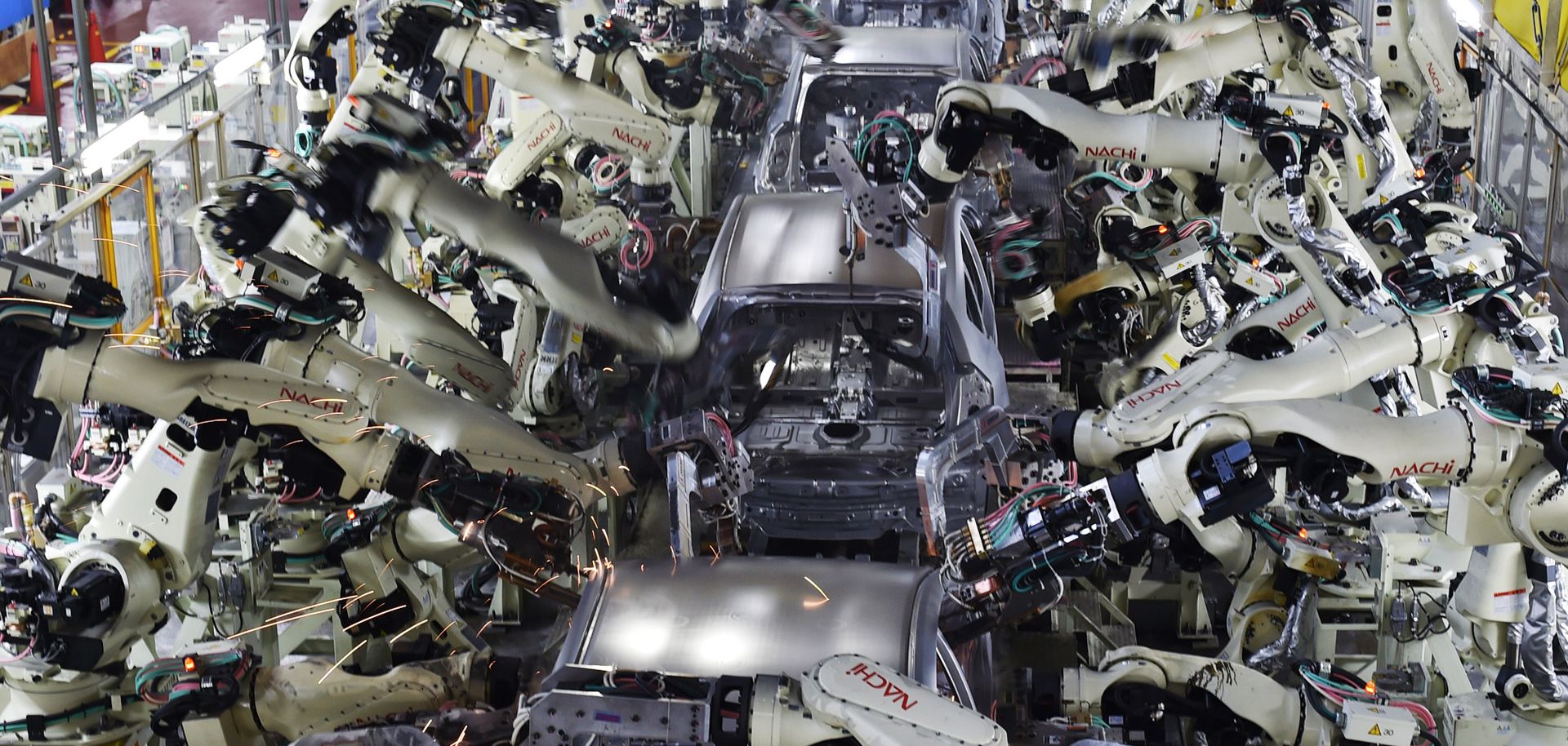Whether you're reading this article on a smartphone, tablet or laptop, chances are the device in front of you contains components from at least six countries spanning three or more continents. Its sleek exterior belies the complicated and intricate set of parts inside that only a global supply chain can provide. Over the past century, finished products made in a single country have become increasingly hard to find as globalization -- weighted a term as it is -- has stretched supply chains to the ends of the Earth. Now, anything from planes, trains and automobiles to computers, cellphones and appliances can trace its hundreds of pieces to nearly as many companies around the world. Its assembly might take place in a different country still.
As avenues for producing and assembling products' parts have spread worldwide, countries have found it easier to climb the production value ladder. States at the bottom, extracting...


